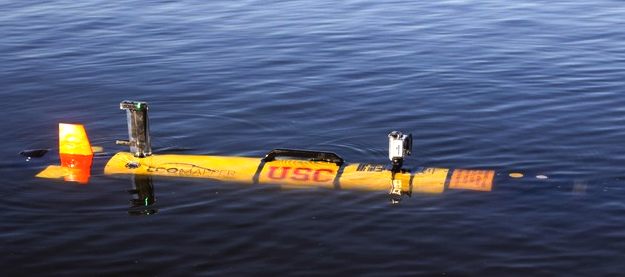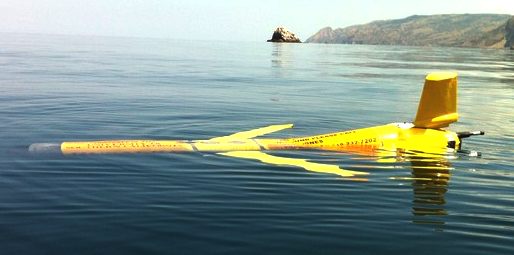
THE
KNOWLEDGE NETWORK - IET welcomes expansion of Small Business Research
Initiative May 14 2013
The Institution of Engineering and Technology (IET) has welcomed today’s announcement by David Willetts of a record £440 million budget for the Technology Strategy Board to support innovative businesses and drive growth across the UK.
Paul Davies, IET Head of Policy, said: “This is welcome news, particularly the expansion in the Small Business Research Initiative (SBRI) which we have been promoting for several years.”
SBRI is an important tool to help the UK economy rebalance towards manufacturing but without consistent and substantial funding, it will not achieve its full potential.
David Evans, Chair of the Innovation and Emerging Technologies Policy Panel, said: “Not only must the Government ensure greater use of the SBRI through financial incentives for public bodies, but it is important that successful projects should be supported by follow-on procurement contracts. This will increase the number of SMEs (small and medium enterprises) awarded government contracts and will help to rebalance the economy.”
“The SBRI will enable the UK to become a high technology exporter and help to develop the larger companies of tomorrow.”
However, the IET is concerned that the scheme will not be effective unless it is widely promoted and used by Government departments. The involvement of these departments is vital to increase economic growth through increased SME procurement expenditure.

ABOUT
SBRI
The SBRI programme uses the power of government procurement to drive innovation. It provides opportunities for innovative companies to engage with the public sector to solve specific problems.
* Overview of SBRI
* Benefits of SBRI
* Previous SBRI competition briefs
* SBRI innovation stories
Competitions for new technologies and ideas are run on specific topics and aim to engage a broad range of organisations.
SBRI enables the public sector to engage with industry during the early stages of development, supporting projects through the stages of feasibility and
prototyping.
The Government announced its intention in the 2013 Budget to expand the use of SBRI among key departments five-fold. The value of contracts made available through this route will increase from £40 million in 2012-13 to over £100 million in 2013-14, and over £200 million in 2014-15.

OVERVIEW
It can be hard for companies to access government departments, or for the public sector to discover businesses with the most innovative products and ideas. We champion the Small Business Research Initiative (SBRI) which matches business ideas to government challenges through a simple procurement process.
SBRI brings innovative solutions to specific public sector needs, by engaging a broad range of companies in competitions for ideas that result in development contracts.
SBRI was a really easy and quick process to gain funding for cutting-edge innovation. - Neil Garner, CEO, Proxama
The business gets finance to develop its ideas, and the public sector gets more innovative solutions to its needs. SBRI encourages public sector organisations to take the lead customer role helping to develop and de-risk innovative solutions for which it might be the potential future customer.
The process starts with a government department or other public body identifying a specific challenge. This is then turned into an open competition for new technologies and ideas that is open to the broad business community. We support all competitions and help with the outreach to innovative businesses.
Companies with potentially interesting technologies and ideas submit an application, either through the
Technology Strategy Board or direct to the department, depending on the competition.
Gaining an SBRI contract has allowed us to raise capital to move offices and the company has expanded threefold. It has given us massive, massive credibility, particularly the engagement with the NHS. - Paul Murphy, Chief Executive, Eykona Technologies
All submitted ideas are assessed, and those judged to be the most promising are awarded development contracts.
This first feasibility phase lasts generally 2 to 6 months, with contracts typically being up to a maximum of £100k.
Following a second assessment stage, a subset of these ideas may be awarded a second phase contract which can be for up to 2 years and a maximum of £1M. These contract values and durations are dependent on the challenge being addressed. This second phase will generally be for the development of a prototype or demonstrator.
After completion of the second phase, companies are expected to commercialise the resulting product or service which is taken to market and open to competitive procurement.
WHO IS ELIGIBLE
Any organisation can submit an application, although it is expected that SBRI opportunities will be particularly attractive for SMEs. SBRI is aimed at organisations working on the development of an innovative process, material, device, product or service.
Successful applications will be those whose technology best addresses the specific needs identified, with the potential to make a measurable improvement to currently available products, processes materials, devices or services. Development contracts will be awarded only to individual organisations.
However, organisations may also wish to demonstrate that successful collaboration will enhance their overall development. Work may be subcontracted but this is the responsibility of the main contractor.
Pre-startups may apply, however the contracts can only be awarded to legal entities. Universities may apply but must demonstrate a route to market i.e. the application must include a plan to commercialise the results. Registered charities are equally eligible to enter SBRI competitions via their trading company limited by guarantee.

COMPUTER
WORLD 9 APRIL 2013
Small Business Research Initiative passes £100 million SME contracts
divided into 1,270 contracts being awarded to SMEs since the scheme launched in 2009.
That translates to an average award of £ 787,401 pounds.
The Small Business Research Initiative (SBRI) has been hailed a success as it passes a milestone of £100 million of contracts awarded to small businesses from public sector departments.
The news coincides with the UK government's pledge to expand the SBRI by increasing the value of contracts offered through the scheme from £40 million in 2012-13 to over £100 million in 2013-14 and over £200 million in 2014-15.
Established in 2009, the SBRI gives SMEs an opportunity to connect with public sector procurement by inviting them to present innovative solutions to specific problems in a competition format.
The ideas presented can result in 100 percent funded government development contracts with the public sector body running the competition. Since inception, the scheme has run 124 full competitions, resulting in 1,270 contracts awarded to SMEs at a total value of £104.8 million.
"The beauty of the SBRI is that it presents a truly win-win scenario whereby government departments can find solutions to very real problems, whilst small businesses have an opportunity to present their ideas to organisations that may otherwise be unreachable," said Stephen Browning, Head of
SBRI at the
TSB.
"The challenges are expressed as outcome-based needs rather than narrow product specification to give greater scope for innovation."
Previous successes include mobile security technology for the Home Office, military technology for the Centre for Defence Enterprise, and assistive learning software for the Department for Business, Innovation and Skills.
The TSB also pointed to the case of young medical technology company Eykon, which won a contract with the NHS in the East of England for its 3D wound imaging technology. Eykona's technology can assess hard-to-heal wounds such as diabetic and pressure ulcers, replacing traditional methods which still involve rulers, tracing paper, and ordinary cameras.
The contract played a crucial role in connecting Eykona with the NHS and securing funding to commercialise the technology. Today Eykona is a listed NHS supplier helping to address the wound care problem that costs the NHS an estimated £3 billion per annum.
"Clinicians working together with entrepreneurs and technology specialists gives us an exciting mix that leads to real
innovation," said Karen Livingstone, Director of Strategic Partnerships, NHS East of England.
"The NHS has many challenges to tackle and, through the SBRI healthcare programme, we are building long-term partnerships with industry to create new products that will save lives and deliver economic value to the UK economy."
Sophie Curtis

RESEARCH
FORTNIGHT
The Small Business Research Initiative, which uses government procurement to drive innovation, is to receive at least a five-fold funding increase, Chancellor George Osborne has announced in his 2013 Budget.
The SBRI, run by the Technology Strategy
Board, will be expanded across “key departments" within government. So far, activity has been mainly limited to the Department of Health, the Ministry of Defence and the NHS, who use the funding to procure pre-commercial technologies from small businesses through targeted competitions.
According to the Budget, expanding the initiative will increase the value of contracts available to small businesses from £40 million in 2012-13 to £100m in 2013-14 and more than £200m in 2014-15.
An evaluation will be carried out to determine whether the scheme could be expanded even further, with an interim report published in autumn 2014 and a final report in February 2015.
The innovation charity Nesta has welcomed the announcement. In an interview with Research Fortnight, its head of innovation and economic growth, Louise Marston, said that the departments involved would now need to increase their skills to engage with the process.
“It requires you to think a bit differently about how you procure the services in the first place—it will take a little time to get the departments up to speed, but it should be very doable,” she says. “Plenty of people in departments are thinking about big challenges, but they may not be the same people currently engaging with the process”.
David Connell, a senior research fellow at the Centre for Business Research at the University of Cambridge, told Research Fortnight that the announcement is “really excellent news” but warned that the “devil is in the detail”.
“In scaling up the programme, it will be necessary for departments to plan very carefully the competitions they’re going to run to ensure they cover a range of technologies and times to market,” said Connell, adding that the key issue will be to “ensure that that is spent through defined competitions and reported transparently through the TSB”.
Osborne has also confirmed a £1.6 billion investment for areas in the business secretary Vince Cable’s industrial strategy, announced on 18 March. This includes a £1.05bn government investment in a UK Aerospace Technology Institute. The investment, to be matched by £1.05bn funding from industry, is to support the UK’s aerospace sector over seven years. Osborne also confirmed that a further £500m will go to agricultural and automotive technologies, with funding for other sectors to be announced later in 2013.
Among the losers in the Budget are private providers of higher education, who have learned that they are not in line for a VAT exemption, following a consultation on a proposal to offer them the same deal as other institutions. The document says the government has “listened to those who have responded [to the consultation] and as a result will look to develop alternative options, including possible changes to the exemption for further education and will consult on these later in the year.”
The announcement was welcomed by the University and College Union.
The Budget also reveals that a £15m fund for the digital content production industry will be set up and run by the TSB.
However, Ian Brinkley, director of The Work Foundation, was not impressed by the announcements. He said the Chancellor’s plans “will have no measurable impact on economic prospects” and that Osborne should have included “significant new investment in science, technology and innovation” in the Budget.
Other announcements include increasing the minimum rate for the R&D tax credit to 10 per cent before tax, rather than 9.1 per cent as suggested in last year’s Budget, and support for shale gas and carbon capture and storage. Two CCS projects will be taken forward to the detailed planning and design stage as part of the Department of Energy and Climate Change’s £1bn CCS commercialisation programme competition. DECC said in statement that the two projects are the Peterhead Project in Aberdeenshire, Scotland, and the White Rose Project in Yorkshire.

CONTRACTS
AWARDED FOR OCEAN ROBOT - March 12, 2013
A project to develop ocean-going robotic vehicles that will carry out sustained marine research over long periods has awarded contracts to five leading-edge technology companies under the Government-backed Small Business Research Initiative (SBRI).
The SBRI competition has awarded the five three-month, first-phase contracts to assess the viability of rugged, robust and reliable long-endurance marine unmanned surface vehicles. The vehicles, which are similar to marine gliders, but which do not operate at depth, will gather data from the ocean over periods of several months in support of UK marine scientific research.
The project brief highlights the fact that a wide range of sensors now exists to take measurements on the ocean surface, that satellite navigation tools and communications for command and control, and for data transfer to shore, are readily available, and that there are a number of feasible technologies available to provide the energy necessary for long deployment.
The successful companies are: MOST Ltd; Blue Bear Ltd; the University of Aberystwyth, Intrepid Minds Limited and ASV Ltd.
The tendering process was coordinated by the Marine Autonomous and Robotics Systems (MARS) facility based at the National Oceanography Centre
(NOC) in Southampton, on behalf of the Natural Environment Research Council
(NERC), the Defence Science and Technology Laboratory and the Technology Strategy Board (TSB).
The year-long second phase of the Long Endurance Marine Unmanned Surface Vehicles. project will develop prototypes. To demonstrate capability and impact these would be used alongside
already funded research projects such as the FASTNEt (Fluxes Across Sloping Topography of the North East Atlantic) which was developed in response to a call for proposals to deliver the NERC Ocean Shelf Edge Exchange Research Programme.
Geraint West, Head of National Marine Facilities Sea Systems at NOC, said: “Technological innovation is central to NOC’s recognition as a world-leader in using autonomous technologies for sustained observation of our oceans. We are delighted to be working with these innovative UK companies and the TSB to develop the next generation of vehicles that promise to take forward our vision in this exciting field.”
The SBRI programme, which is championed by the Technology Strategy Board, the UK’s innovation agency, is designed to use the power of government procurement to drive innovation. It provides opportunities for innovative companies to engage with the public sector to solve specific problems. Competitions for new technologies and ideas are run on specific topics and aim to engage a broad range of organisations. SBRI enables the public sector to engage with industry during the early stages of development, supporting projects through the stages of feasibility and prototyping.
Stephen Browning, Head of SBRI at the Technology Strategy
Board, said: “It is really exciting to see the proven SBRI mechanism now helping to stimulate engagement between the National Oceanography Centre and these five companies to deliver innovation in this area. We congratulate all the companies on their contract awards and wish them every success.”

ASV GLOBAL
Autonomous Surface Vehicles (ASV) won the second phase of the recent SBRI competition to develop a Long Endurance Marine Unmanned Surface Vehicle
(LEMUSV) under the U.K. government-backed Small Business Research Initiative (SBRI). Run by the Natural Environment Research Council (NERC) and the Defense, Science and Technology Laboratories
(DSTL) the competition brief sought to develop an autonomous vehicle to gather data from the ocean over several months.
The team includes Cosworth, who are looking at generator systems, Hyperdrive Ltd. who will investigate motor options and power management systems and
Cranfield University who will be considering collision avoidance technologies.
ASV will undertake the detailed production design, build, commissioning and sea trials of a fully operational, open ocean going “C-Enduro 4” vessel. This second phase work will build on research and development from the phase one of the LEMUSV project. The robust vehicle design will utilize state of the art technologies from the consortium and be designed specifically capable of being deployed at sea for periods of up to three months in all weather conditions and sea states.
The C-Enduro concept centers on a three pillar energy system providing a flexible and fault tolerant solution to energy supply. Having researched and trialed various energy sources as part of the phase one work the team has selected solar panels, a wind generator and a lightweight diesel generator as energy sources. Detailed calculations and tests show that this selection, combined with efficient power management and command and control systems packaged in a rugged self-righting vehicle, provides the greatest likelihood of meeting the performance requirements of this project.
ASV will work closely with the NERC and DSTL teams to ensure that their requirements and ideas are captured and incorporated in the detail design.
ASV has a proven track record in Unmanned Systems over 10 years and has delivered systems to a range of military and commercial customers with all having passed rigorous acceptance testing in accordance with ISO 9001 accreditation. This puts them in an excellent position to meet the challenges of this project.

PREVIOUS
SBRI COMPETITIONS
-
The
Challenges of Countering Terrorist Networks, Open date: 19
March 2013, Close date: 01 May 2013
-
Smart
Micro- and Nano-Scale Materials and Structures for Defence and
Security, Open date: 21 February 2013, Close: 09 April 2013
-
Low-Size,
Weight, Power and Cost, Intelligence, Surveillance, Target
Acquisition and Reconnaissance, Open: 5-2-13, Close: 15-3-13
-
Improved
experience for people with mental health illnesses, Open date:
03 January 2013, Close date: 28 February 2013
-
Improved
experience for people at the end of their lives, Open date: 03
January 2013, Close date: 28 February 2013
-
Strengthening
the security of maritime operations, Open date: 24 January
2013, Close date: 25 February 2013
-
Sustainable
utilisation of poultry litter, Open date: 10 December 2012,
Close date: 20 February 2013
-
Non-Destructive
Evaluation of Munitions, Open date: 08 January 2013, Close
date: 19 February 2013
-
Preventing
fraud in mCommerce, Open date: 19 November 2012, Close date:
16 January 2013
-
How
to Promote Legitimate Online Intellectual Property Markets,
Open date: 24 October 2012, Close date: 10 January 2013
-
Energy
Storage Technology demonstration competition, Open date: 19
October 2012, Close date: 13 December 2012
-
Future
Digital Systems, Open date: 24 October 2012, Close date: 06
December 2012
-
Invest
in Innovative Refurb, Open date: 15 October 2012, Close date:
28 November 2012
-
CRACK
IT, Open date: 12 September 2012, Close date: 23 November 2012
-
Novel
Systems for Defence Training and Evaluation, Open date: 18
October 2012, Close date: 22 November 2012
-
Wetlands
Biomass to Bioenergy, Open date: 08 October 2012, Close date:
14 November 2012
-
Finding
the Threat – Innovation proposals for security and intelligence
applications, Open: 3 October 2012, Close: 8 November 2012
-
Greenius
Award, Open date: 24 September 2012, Close date: 05 November
2012
-
Long
Endurance Marine Unmanned Surface Vehicles, Open date: 17
September 2012, Close date: 5 November 2012
-
Cyber
Situational Awareness: We want the benefit of hindsight & we
want it now!, Open: 25 Sept 2012, Close: 29 October 2012
-
Local
economy closed loops - extraction of metals and minerals from
waste, Open: 30 July 2012, Close: 18 September 2012
-
Strategic
Challenges of Food Safety, Open date: 10 July 2012, Close
date: 13 September 2012
-
Design
for Future Climate - Climate Resilient Infrastructure, Open
date: 23 July 2012, Close date: 06 September 2012
-
Generation-after-next
chemical, biological and radiological hazard mitigation systems,
Open: 24 July 2012, Close: 6 Sept 2012
-
Energy
Efficiency and Optimisation for Defence, Open date: 11 July
2012, Close date: 28 August 2012
-
Advanced
Heat Storage, Open date: 30 May 2012, Close date: 17 August
2012
-
Innovation
in technology for unmanned maritime systems, Open date: 26
June 2012, Close date: 09 August 2012
-
Advances
in design, fabrication and manufacture: the impact of emerging
technology on defence, Open: 12-6-12, Close: 18-7-12
-
Improving
the mobility of land forces, Open date: 29 May 2012, Close
date: 11 July 2012
-
Innovative
Environmental Sensors, Open date: 28 May 2012, Close date: 11
July 2012
-
Galileo
Public Regulated Service (PRS) - UK PRS Demonstrator Programme,
Open date: 28 May 2012, Close date: 27 June 2012
-
Armour
and Protection Science and Technology Centre, Open date: 15
May 2012, Close date: 19 June 2012
-
Stratified
Medicine: Determining patient response, Open date: 26 March
2012, Close date: 13 June 2012
-
Innovative
and novel protection systems, Open date: 15 May 2012, Close
date: 04 June 2012
-
Changing
behaviour to reduce the impact of obesity and alcohol related
diseases, Open date: 28 March 2012, Close: 01 June 2012
-
The
extremes of defence medical capability, Open date: 23 April
2012, Close date: 31 May 2012
-
Medicines
Management, Open date: 26 March 2012, Close date: 18 May 2012
-
How
can we connect communities and visitors along the Wales Coast Path,
Open date: 14 March 2012, Close date: 02 May 2012
-
Low
Carbon Sustainable Pumping Systems, Open date: 29 February
2012, Close date: 04 April 2012
-
Innovation
in ISTAR (Intelligence, Surveillance, Target Acquisition and
Reconnaissance), Open: 7-2-12, Close: 2 April 2012
-
Maritime
Platform Efficiency & Sustainability, Open date: 26
January 2012, Close date: 13 March 2012
-
Operational
Research and Analysis, Open date: 15 November 2011, Close
date: 17 January 2012
-
Optimisation
of anaerobic digestion, Open date: 09 November 2011, Close
date: 21 December 2011
-
Small
scale anaerobic digestion, Open date: 09 November 2011, Close
date: 21 December 2011
-
Innovative
solutions to protect and secure UK interests in cyberspace,
Open date: 01 November 2011, Close: 08 December 2011
-
Assessing
the impact of near-patient testing, Open date: 26 September
2011, Close date: 16 November 2011
-
Future
Sensor Systems, Open date: 04 October 2011, Close date: 15
November 2011
-
Technologies
for Unmanned Air Systems, Open date: 27 September 2011, Close
date: 04 November 2011
-
NC3Rs/CRACK
IT Challenges, Open date: 20 September 2011, Close date: 02
November 2011
-
Novel
Materials for Defence Exploitation, Open date: 06 September
2011, Close date: 18 October 2011
-
Dismounted
Urban Sensing and Targeting (DUST), Open date: 08 September
2011, Close date: 18 October 2011
-
ISTAR
Concepts and Solutions Tranche 1 - Novel Integrated ISTAR,
Open date: 08 September 2011, Close date: 27 September 2011
-
Strategic
Challenges on Food Security, Open date: 10 August 2011, Close
date: 14 September 2011
-
Trustworthy
Digital Systems, Open date: 13 July 2011, Close date: 13
September 2011
-
DALLAS
- Delivering Assisted Living Lifestyles at Scale, Open date:
07 June 2011, Close date: 27 July 2011
-
Armour
and Protection, Open date: 07 June 2011, Close date: 19 July
2011
-
Applying
New Thinking to Counter Terrorism – A Complex Adaptive Systems
Approach, Open: 23 March 2011, Close: 21 June 2011
-
Have
I got ‘views' for you?, Open date: 07 March 2011, Close
date: 03 May 2011
-
Improving
the Health of People with Long-Term Conditions ‘Personalisation
and Empowerment', Open: 28-2-11, Close: 7-4-11
-
Improvised
Explosive Devices (IED) Threat Awareness, Open date: 16
February 2011, Close date: 07 April 2011
-
Independence
Matters, Open date: 07 February 2011, Close date: 23 March
2011
-
Measurement
of the energy yield from the biobased fraction of mixed waste,
Open: 24 January 2011, Close: 16 March 2011
-
Making
waves: gesture-based communications system, Open date: 07
January 2011, Close date: 15 March 2011
-
Plain
sailing: easy, navigable and personalisable access to digital
information, Open: 07 January 2011, Close: 15 March 2011
-
GeoVation
Challenge – How can we improve transport in Britain, Open
date: 28 September 2010, Close date: 11 February 2011
-
Next
Generation Nuclear Material Detection, Open date: 08 December
2010, Close date: 08 February 2011
-
Collaborative
Multi-Source Intelligence, Open date: 07 December 2010, Close
date: 25 January 2011
-
NI
Tourism Apps, Open date: 07 December 2010, Close date: 20
January 2011
-
Innovative
Approaches to Detection of Biological Agents, Open date: 19
November 2010, Close date: 20 December 2010
-
SBRI
Stroke, Open date: 12 October 2010, Close date: 16 December
2010
-
Armour
and Protection, Open date: 28 October 2010, Close date: 07
December 2010
-
Application
of Biometric Technologies for Force Protection and
Counter-Terrorism, Open: 19 October 2010, Close: 22 Nov 2010
-
Fast
Track to the Front Line,, Open date: 15 October 2010, Close
date: 11 November 2010
-
Determination
of the energy content in the biomass fraction of a mixed waste
stream, Open: 20 Sept 2010, Close: 03 Nov 2010
-
Cyber
Defence - Next Generation Analytical Tools, Open date: 09
September 2010, Close date: 14 October 2010
-
On
farm test for Campylobacter, Open date: 06 July 2010, Close
date: 17 September 2010
-
Future
Sensing of Underwater Threats, Open date: 21 July 2010, Close
date: 15 September 2010
-
Living
well with Dementia, Open date: 30 June 2010, Close date: 09
September 2010
-
Reduction
in hospital admissions, Open date: 29 June 2010, Close date:
23 August 2010
-
Screening
for Drug Drivers, Open date: 03 June 2010, Close date: 15 July
2010
-
Next
Generation IED Search and Defeat Capability, Open date: 13 May
2010, Close date: 24 June 2010
-
Influence
through Cyberspace, Open date: 22 April 2010, Close date: 07
June 2010
-
Helicopter
Rotor Blade Scintillation, Open date: 11 February 2010, Close
date: 11 May 2010
-
Energy
efficient Whitehall, Open date: 22 February 2010, Close date:
19 April 2010
-
Ultra-efficient
lighting for homes, Open date: 22 February 2010, Close date:
19 April 2010
-
Less
Than Lethal Weapons and Effects, Open date: 29 November 2009,
Close date: 05 January 2010
-
Battlefield
Medical Technology, Open date: 22 October 2009, Close date: 04
December 2009
-
Detection
of Volatile Compounds, Open date: 06 October 2009, Close date:
01 December 2009
-
Fractured
Neck of Femur, Open date: 12 October 2009, Close date: 16
November 2009
-
Paediatric
non-invasive technologies, Open date: 12 October 2009, Close
date: 16 November 2009
-
Paediatric
improved diagnostics, Open date: 12 October 2009, Close date:
16 November 2009
-
Paediatric
Transport Chair, Open date: 12 October 2009, Close date: 16
November 2009
-
Armour
and Protection, Open date: 08 October 2009, Close date: 12
November 2009
-
Automatic
Imagery Extraction, Open date: 27 July 2009, Close date: 11
September 2009
-
Lightweight
Personal Protection, Open date: 25 June 2009, Close date: 04
September 2009
-
Future
Protected Vehicle – 30 tonne tank, Open date: 25 June 2009,
Close date: 03 September 2009
-
Prosthetics,
Open date: 16 July 2009, Close date: 03 September 2009
-
Self
Sustaining Forward Operating Base, Open date: 21 May 2009,
Close date: 31 July 2009
-
Intent
in Crowded Places, Open date: 03 June 2009, Close date: 10
July 2009
-
Lightweight
Soldier Weapon System, Open date: 23 April 2009, Close date:
05 June 2009
-
Hot
Products, Open date: 20 April 2009, Close date: 29 May 2009
-
Countering
Difficult Air Targets, Open date: 24 February 2009, Close
date: 22 May 2009
-
Energy
Efficient Soldier, Open date: 24 March 2009, Close date: 07
May 2009
-
Novel
Technologies for Complex Weapons, Open date: 27 January 2011,
Close date: 19 March 2011
-
Maritime
Data and Information Assimilation, Open date: 5 April 2011,
Close date: 14 July 2011
-
Unmanned
Distribution Systems, Open date: 19 January 2011, Close date:
24 March 2011
-
Less
Than Lethal Escalation of Force, Open date: 12 October 2010,
Close date: 07 November 2010
-
Synthetic
Environments in managed motorways, Open date: 09 July 2009,
Close date: 11 September 2009
-
Keeping
Children Active, Open date: 22 April 2009, Close date: 30 June
2009
-
Managing
Long term Conditions, Open date: 22 April 2009, Close date: 30
June 2009
-
Patient
Safety and improving health outcomes, Open date: 22 April
2009, Close date: 30 June 2009
-
Retrofit
for the Future, Open date: 07 April 2009, Close date: 24 June
2009
-
Personal
Robotics Support Vehicle, Open date: 23 April 2009, Close
date: 05 June 2009
LINKS
& REFERENCE
https://www.innovateuk.org
https://sbri.innovateuk.org/
http://www.theiet.org/
https://www.innovateuk.org/-/sbri#overview
http://www.science.mod.uk/Engagement/the_portal.aspx http://www.science.mod.uk/Engagement/enterprise.aspx https://www.dstl.gov.uk/centrefordefenceenterprise https://www.dstl.gov.uk
US
Department of Navy Research, development & Acquisition - http://acquisition.navy.mil/ US
Fleet Forces Command - http://www.cffc.navy.mil/
US
http://www.msc.navy.mil/
http://en.wikipedia.org/wiki/Naval_Oceanographic_Office
http://noc.ac.uk/news/contracts-awarded-ocean-robot-project
http://www.asvglobal.com/latest-news-and-publications/latest-news/asv-to-build-usv-under-sbri-funding
http://www.cbr.cam.ac.uk/news/
UKHO
http://www.thebiponline.co.uk/bip/iet-welcomes-expansion-of-small-business-research-initiative/
http://www.researchresearch.com/index.php?articleId=1313201&option=com_news&template=rr_2col&view=article
http://www.maritimejournal.com/news101/industry-news/ukho-appoints-new-national-hydrographer http://en.wikipedia.org/wiki/United_Kingdom_Hydrographic_Office http://www.ths.org.uk http://www.spri.cam.ac.uk/friends/committee/ http://www.thefutureofnavigation.com/ten_steps.aspx http://www.quaynote.com/ankiti/www/?code=ecdis13&f=programme
Wiki
United_Kingdom_Hydrographic_Office
https://www.dstl.gov.uk/insight

PATENT
PENDING - The
key to accurate hydrographic mapping is continuous monitoring,
for which the Bluefish SNAV
platform, presently under development, is a robotic ocean workhorse. Based on a stable
SWASH
hull this design is under development in the UK, looking to expand into
the US. The robot
ship uses no diesel fuel to monitor the oceans autonomously (COLREGS
compliant) at relatively high
speed 24/7 and 365 days a year - only possible with the revolutionary (patent) energy harvesting system. The
hullform is ideal for automatic release and recovery of ROVs
or towed arrays, alternating between drone and fully autonomous modes.
International development partners are welcome. This vessel
pays for itself in fuel saved every ten years.
|








